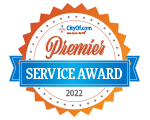Rethinking Your Relationship with Money
This is a subtitle for your new post

Money doesn’t just live in your bank account. It shapes your routines, dictates your stress levels, and colors your sense of safety. For many, it carries shame, confusion, or pressure. That weight often comes not from the money itself, but from the habits and beliefs attached to it. Financial change starts with attention — not spreadsheets. Rhythm matters more than control. The first step is listening.
Start Where the Feelings Live
Most people don't think about money as emotional. But it is. That sinking feeling when rent’s due? That sudden rush when you buy something you don’t need? Those are data points. Understanding your emotions around money means confronting the deep stories that shape how you earn, spend, and save — stories that often started long before you had a paycheck. Financial psychology shows how money beliefs are formed early and how they drive nearly every behavior we call "financial." Instead of avoiding the discomfort, start tracking the triggers. What moments in your day spike anxiety around spending or guilt after purchasing? Emotional fluency is the first tool in building a truly functional relationship with money — because you can’t change what you won’t name.
Mental Shortcuts Can Cost You
Even when we think we’re being logical, the brain has its own agenda. Without realizing it, we default to old thinking patterns that feel “safe” — even when they cost us. Learning how unconscious biases affect your financial choices reveals why so many people sabotage their own plans. Loss aversion makes you panic and sell investments when they dip. Overconfidence makes you take risks you’re not prepared for. Anchoring keeps you stuck comparing today’s numbers to a long-gone past. Spotting these mental traps gives you room to pause before acting. That pause is where better decisions begin.
Upskilling for Earning Power
Improving your relationship with money also means increasing the inflow, not just managing the outflow. Investing in your own skill set can be one of the most reliable ways to grow your income and ease financial stress. For people considering career change or re-entry, earning credentials like A+ Certification can open doors to higher-paying roles in technology without requiring years of schooling. This isn’t only about a better paycheck. It’s also about reframing how you see yourself: as someone with in-demand expertise, capable of commanding more, and moving from scarcity to possibility.
Don’t Let Taxes Derail Your Progress
Taxes are one of the most common sources of financial anxiety, and yet they’re rarely discussed as part of “money mindset.” Effective tax management is an act of self-care too. Staying ahead of obligations keeps you out of crisis mode and builds long-term stability. Partnering with professionals such as Golden Eagle Tax & Financial Services helps individuals handle preparation and resolution with confidence. By offloading the complexity to experts, you reduce stress, stay compliant, and free up energy to focus on future planning. This isn’t a luxury — it’s a practical step toward lasting financial well-being.
Control Doesn’t Mean Cutting Out Joy
Money management often gets framed as a war between “fun” and “responsibility.” But it’s more subtle than that. Being intentional with your spending doesn’t mean depriving yourself; it means choosing in alignment with your values. Successfully navigating spending trade-offs creates a sense of freedom rather than restriction. Each decision — whether to splurge on a weekend away or funnel that cash into savings — becomes an active expression of what matters to you now and later. Over time, you’ll notice less guilt about spending and more satisfaction about saving because both are tied to a clear purpose.
Money as Maintenance, Not Punishment
Too many people treat budgeting like punishment. What if it were self-care? Framing financial practices as self-nourishment shifts everything. When you save, you’re protecting your future self. When you automate bills, you’re freeing your present self from stress. Self-care can reframe your financial decision-making and transform the whole experience of money. It’s not about numbers on a page; it’s about making your life smoother, less chaotic, and more supportive. Treating money as part of your wellness routine means you’re less likely to abandon it when life gets messy.
Rewrite the Scripts That Drive Your Spending
It’s easy to tinker with budgets but never touch the root cause of overspending. The real change happens when you reprogram the internal scripts that tell you spending equals freedom or love or safety. By transforming beliefs that drive emotional spending, you identify triggers before they lead to purchases. This isn’t about guilt; it’s about giving yourself more choices. When you interrupt the pattern, you can redirect that energy — and that cash — toward goals that genuinely matter to you, not impulses you’ll regret.
Healthy money behavior isn’t about getting everything right. It’s about tuning into patterns, adjusting as you go, and letting your choices reflect what matters. Emotional awareness sharpens action. Structure reduces chaos. Learning new skills expands possibility. Trusted guidance removes unnecessary pressure. Over time, your decisions become less reactive and more rooted. That steadiness is what financial health feels like.
Discover how Golden Eagle Tax & Financial Services can maximize your tax refund and secure your financial future—visit Golden Eagle Tax & Financial Services today!



